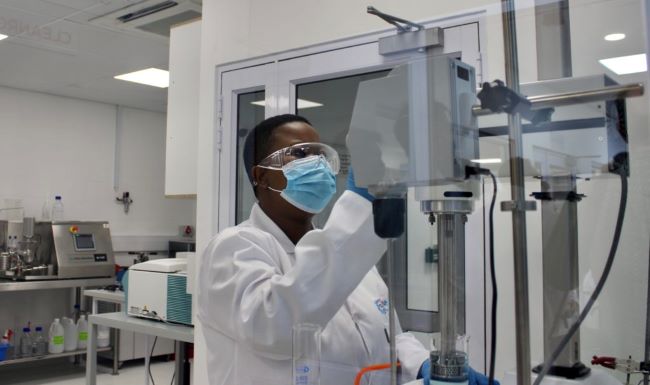Researchers at the Nigerian Institute of Medical Research have said that more than 43 million Nigerians are at risk of getting river blindness.
River blindness, also called onchocerciasis, is a tropical disease. It is caused by a parasite called Onchocerca volvulus and is spread by black flies that live near fast-flowing rivers in rural areas.
According to the World Health Organization, over 99% of people infected with this disease live in Africa and Yemen. A small number also live near the border of Brazil and Venezuela.
In 2023, the World Health Organization said that **at least 249.5 million people worldwide needed preventive treatment for river blindness.
The WHO also said that, as of 2017, about 14.6 million people had skin problems caused by the disease, and 1.15 million had lost their sight.
During a monthly media chat, Dr. Babatunde Adewale, a Director of Research at NIMR, said that many Nigerian communities still have river blindness. He explained that poor living conditions and insecurity make it hard for health workers to reach these places.
Dr. Adewale said that the drug ivermectin kills the larvae of the parasite, but the adult worms stay in the body. That’s why **long-term treatment is needed to stop the disease from spreading.
He explained that mass treatment with ivermectin has helped Nigeria reach the stage where the disease transmission is being stopped.
According to Dr. Adewale, 43 million Nigerians are at risk, but about 37 million have already received treatment. He noted that treatment has been ongoing for many years and has slowed down in some areas. However, insecurity in certain regions still blocks access, and the disease still exists in almost every state, except Lagos and Rivers.
He said that states like Katsina, Nasarawa, Enugu, Anambra, Borno, and Abia have already stopped the spread of the disease.
Ongoing lab tests are being done on over 3,000 blood samples per state. This helps the Federal Ministry of Health find out which states are close to completely stopping the disease.
Dr. Adewale said, “We are now at the stage of stopping the transmission. Treatment has been going on for over 15 years.”
He explained that if less than 0.1% of the blood samples test positive, it means the **disease is no longer being spread in that area.
Dr. Adewale said he is hopeful that Nigeria can eliminate river blindness by 2030, which is the national goal.
Speaking about the treatment, he said, “Ivermectin works very well. After six months of treatment, the parasite is often gone from the skin.”
He added that the first goal was to control the disease, but now the focus is on eliminating it because ivermectin has been shown to work well when used for 12 to 15 years.
Dr. Adewale explained that although ivermectin quickly kills the young parasites, the adult worms keep producing new ones, so treatment must continue until all the adult worms die.
Dr. Adeniyi Adeleye, a medical sociologist and research fellow at NIMR, said that local beliefs are slowing down the fight against river blindness.
He explained that many people in rural areas do not believe insect bites cause the disease, even though scientists have proven that black fly bites are responsible.
He shared findings from research showing that people often think witchcraft or divine punishment is to blame for the disease.
Dr. Adeleye said these wrong beliefs make people less likely to accept medical help, and that public health efforts can fail when they are not connected to what people believe.
He said it is very important to address these cultural beliefs so that people in affected communities can understand and trust the treatment available to them.


